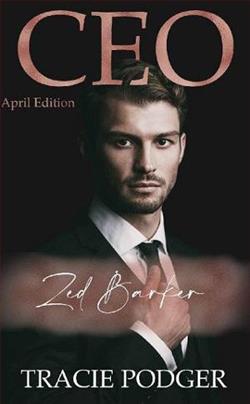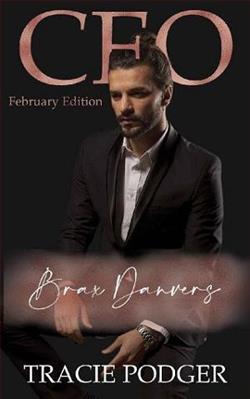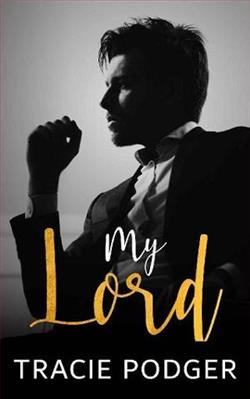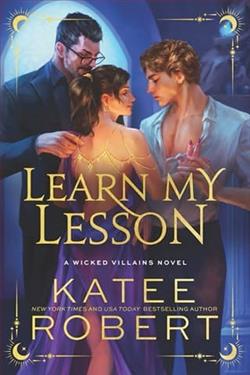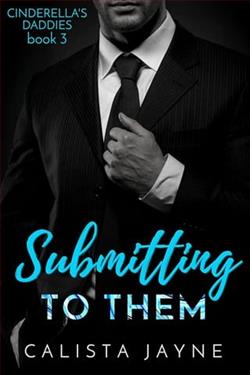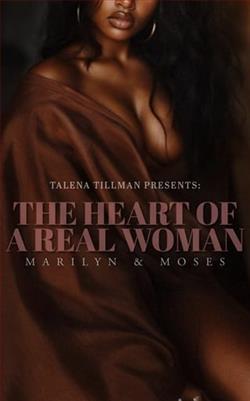Page 10 of Badlands
“Starting with the clothes,” Corrie said, “they’re of the cheapest kind, mass produced in China and Vietnam, in polyester and other cheap materials not suitable to the desert environment. Same goes for the running shoes—they are about the cheapest shoes you can buy. I looked them up online—$8.99. There’s almost no wear on the shoes and none on the clothes. My guess is that the victim purchased this clothing not long before her death at a Walmart or similar discount store. These are mass-market brands that are not readily traceable or dateable.”
“It’s as if she was trying to obscure her identity.”
“I had that same thought.”
“No canteen or water bottle?”
“None, and no hat, either. And nothing in the pockets. As far as the rest of the evidence goes—” she waved at the miscellany of stones, plant material, and wood—“most of it doesn’t appear to be relevant. But that spearpoint was found in the immediate vicinity, and it occurred to me it could have been used as a weapon.”
His eyebrows rose. “A murder weapon?”
“Maybe. It’s three inches long. It’s possible you could stab someone with that as a handheld object. I’m going to do a scanning electron microscope examination, as well as some residue tests for blood and protein.”
A nod. He said nothing, but Corrie sensed he was curious about her next steps.
“Now,” she said, “I plan to search that missing persons window for a five-foot-eleven-inch blonde woman with perfect teeth. And… I’m going to do a forensic facial reconstruction.” She shut her mouth against the ingrained instinct to ask for permission.
Sharp merely nodded again. “I know it’s perhaps premature, but do you have any, shall we say…speculativethoughts about the victim?”
Corrie hesitated. “Well, I have the sense that she was a poised and intelligent woman.”
His eyebrows arched. “Intelligent? Going out in the desert dressed like that, with no water and no hat?”
“It’s dumb only if she did it out of ignorance.”
“I’m not sure what you mean.”
Corrie prepared to reply, then paused just a moment to revise her answer. “Sir, I’m not exactly sure what I mean, either.”
His lazy expression morphed into a grin. “Maybe by the next time we bump into each other you will.”
7
THE BIRDSONG ANDrushing of brook water were interrupted by the sound of a slamming trunk. “Nora, you ready?” came the call.
“Just finishing my coffee,” she said back.
For a minute or two, the sounds of nature again filled the air. Then Lucas Tappan mounted the steps and joined her on the back porch, flopping down in an Adirondack chair. She offered him a sip from her cup and they spent a few minutes passing it back and forth in silence, feet up on the railing, enjoying the view over the North Star Nature Preserve.
Tappan had been Nora’s boyfriend for almost nine months now. During that time, she had not seen him all that much—he had spent several months back east trying to set up a wind farm business off the coast. When he returned, Nora had begun fearing the moment he might approach her with a black velvet box containing a diamond just slightly smaller than the Great Star of Africa. It wasn’t that she was averse to being engaged, and she knew her late husband, Bill, wouldn’t object—coming into a vast sum of money was something he’d enthusiasticallyencourage—but it was too soon for her. Either Lucas sensed her hesitation, or he felt the same way himself, because he hadn’t hinted at taking things to the next level… yet.
She finished the coffee, and Lucas took the cup back into the kitchen and rinsed it out. This was one of the things she liked about him: despite being worth more than a billion dollars, he was a demon at dishwashing and an enthusiastic cook. Even more, he hated other people doing things for him that he could do himself. Instead of wallowing in pampered luxury at one of Aspen’s numerous resorts, they’d opted for a rustic cabin in the mountains with a fantastic view. Of course, once they reached Aspen/Pitkin County Airport—and Lucas’s private jet—everything would change. He was due back on the East Coast in a few days, looking after his corporate interests and putting out fires—for several months, this time—and she’d be back at the Institute. That was why, Nora mused, they’d tried to make every minute of this vacation count.
She’d been dreading leaving their private cabin. And now, as she heard the sound of running water in the kitchen, she flushed like a schoolgirl with a naughty idea. Maybe they could play hooky—stay one more day. And she had an idea how she might bring that about.
“Which did you enjoy more,” she asked, raising her voice so she could be heard through the screen door, “Castle or Maroon?”
There was a brief silence while the water turned off before a reply came. “Maroon. A lot more technical, and what an iconic peak.”
They had spent the vacation climbing fourteeners—the Colorado peaks over fourteen thousand feet in altitude. Nora had loved hiking and climbing since she was a girl, and during her tenure at New York’s Museum of Natural History, she had becomea “forty-sixer”—climbing every high peak in the Adirondacks, including the trailless ones. Back here in Colorado, she’d found an even greater challenge—in altitude, at least. It was just one of the many passions she shared with Lucas… and that’s what she was counting on.
“I feel the same way,” she said. “Long hike, big challenge—but it was worth it.” She paused. “Kind of reminded me of Algonquin, second highest in New York. Of course, Maroon and Pyramid are in a different league… And might I point out, Pyramid shares much of the same route?”
She left the sentence hanging. Lucas came back on the porch. “Are you suggesting something?”
“Probably.”
Lucas fell silent. Watching him frown in thought, the cleft in his chin coming into prominence and his gray eyes going far away under the curls of black hair, she felt a burst of affection.








